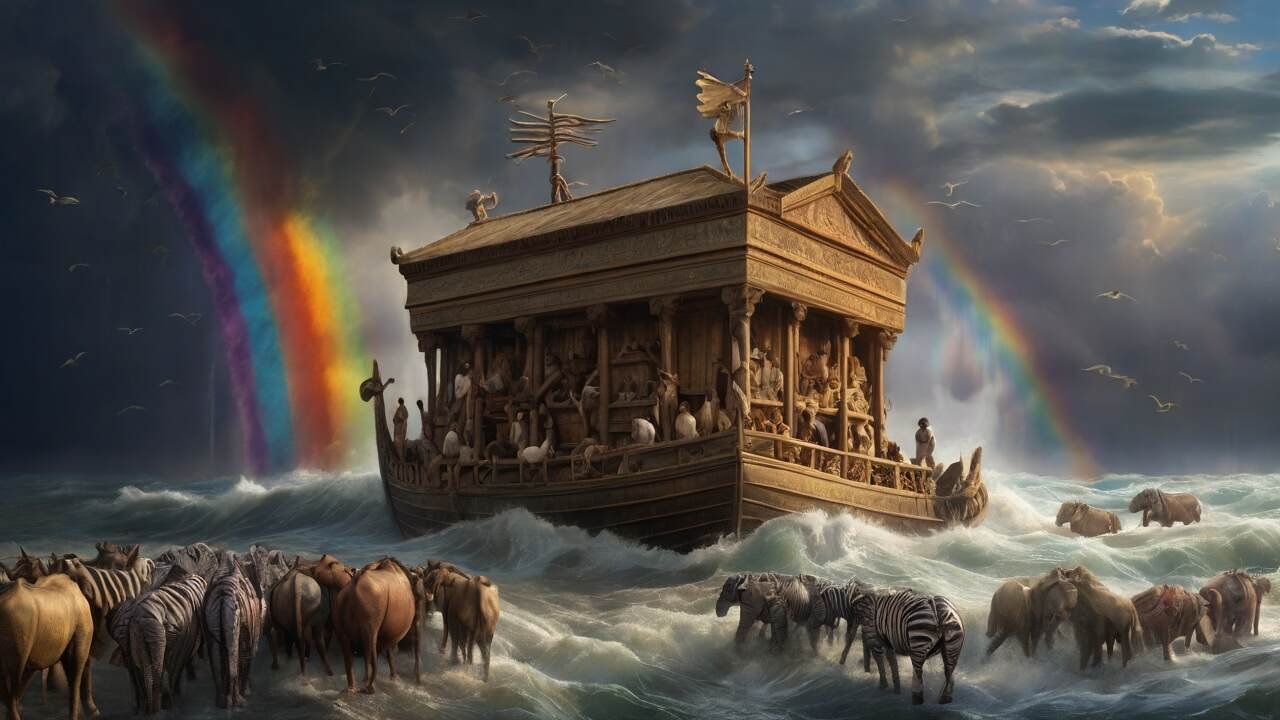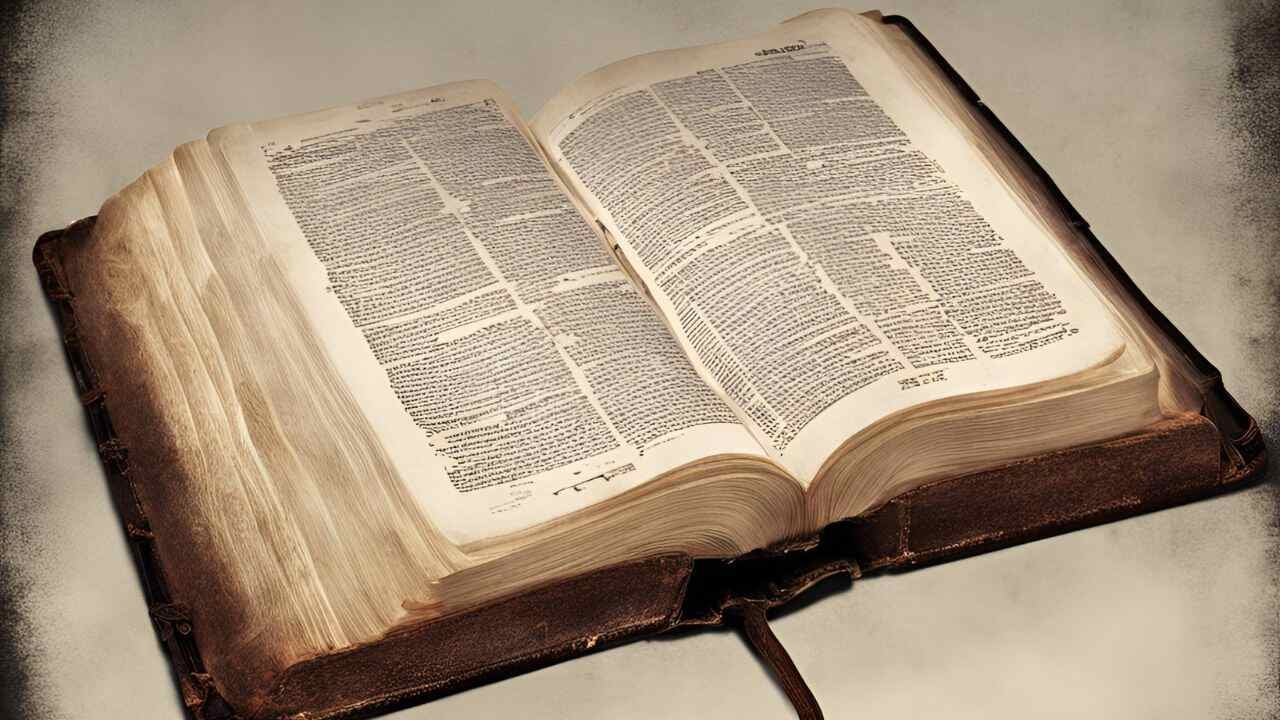In the rich tapestry of Christian tradition, the presence and role of guardian angels have long held a sacred place. These angelic beings, entrusted by the divine to watch over and protect God’s children, have captivated the hearts and imaginations of believers throughout the ages. Far beyond the simplistic imagery of a tiny angel perched on one shoulder, the Church’s teaching on guardian angels reveals a profound understanding of their divine purpose and the intricate ways they intersect with the lives of the faithful.
From the dawn of creation, angels have been integral to the history of salvation, serving as protectors, guides, and messengers of the Almighty. The Catechism of the Catholic Church offers a beautiful and detailed description of the guardian angels’ roles and responsibilities, grounding this belief firmly in both Scripture and Tradition. As we explore the rich tapestry of this sacred doctrine, we discover a profound truth: that the unseen realm of the divine is ever-present, watching over us with unwavering care and compassion.
Key Takeaways
- Guardian angels are a fundamental part of Christian belief, with a rich history and tradition within the Church.
- Angels have played an active role in the history of salvation, serving as protectors, guides, and messengers of the divine.
- The Catechism of the Catholic Church provides a detailed understanding of the roles and responsibilities of guardian angels.
- The belief in guardian angels reflects a profound truth about the unseen divine realm and its constant presence in the lives of the faithful.
- Exploring the concept of guardian angels can deepen one’s faith and spiritual connection with the divine.
Introduction to Guardian Angels in Christianity
The idea of guardian angels, or angelic beings assigned to watch over and protect individual humans, has long been an integral part of Christian faith and belief. While the concept is not explicitly defined in Scripture, there are numerous biblical passages that suggest the existence and roles of these celestial guardians.
The Biblical Basis for Guardian Angels
Throughout the Old Testament, angels are often depicted as protectors and guides, intervening in human affairs to safeguard God’s people. One notable example is the angel that prevented Abraham from sacrificing his son Isaac (Genesis 22:11-12). In the New Testament, Jesus speaks of “their angels” in heaven (Matthew 18:10), suggesting that each person has a guardian angel watching over them.
The early Christian church also held a strong belief in the existence of guardian angels. In the Book of Acts, when the apostle Peter was miraculously freed from prison, the other believers thought his guardian angel had come to rescue him (Acts 12:15).
Roles and Responsibilities of Guardian Angels
According to Christian teachings, guardian angels have a multitude of responsibilities in guiding and protecting their human charges. The Catechism of the Catholic Church describes their role as “trying to influence our will through our senses and imagination, working to guide us towards heaven and protect our souls, especially at the moment of death.”
Some of the key roles and responsibilities of guardian angels include:
- Providing divine guidance and spiritual protection
- Interceding on our behalf before God
- Offering comfort and consolation in times of distress
- Shielding us from physical and spiritual harm
- Assisting in the journey towards eternal salvation
Through their constant presence and watchful care, guardian angels serve as tangible reminders of God’s love and the spiritual realm that surrounds us, strengthening our faith and trust in the divine.
“See that you do not despise one of these little ones. For I tell you that their angels in heaven always see the face of my Father in heaven.”
– Matthew 18:10
Discuss the concept of guardian angels in Christian belief.
The belief in guardian angels holds a significant place in Christian faith and tradition. While not an officially defined doctrine, the concept of guardian angels is widely recognized and celebrated within the Church. Angels, as pure spiritual beings, possess the power of intellect and will, and are believed to serve as messengers, protectors, and guides for humanity.
Although the specific idea of each person having a designated guardian angel is not definitively stated in Scripture, there are numerous biblical passages that suggest the existence of angels who watch over and assist individual believers. For instance, Jesus’ words in Matthew 18:10 imply that children have angels who continually behold the face of God, hinting at the notion of personal guardian angels.
The Church Fathers, such as Origen and St. Jerome, further developed the understanding of guardian angels and their roles in the lives of Christians. They emphasized the idea that angels are divinely appointed to provide spiritual guidance, divine protection, and angelic intervention for the faithful.
“For He will command His angels concerning you to guard you in all your ways.” (Psalm 91:11)
The concept of guardian angels in Christian belief is deeply rooted in the faithful’s desire for spiritual support and divine protection. This belief reflects the human longing for a personal connection with the spiritual realm and a sense of being watched over by celestial beings.
Through faith and spirituality, the concept of guardian angels encourages believers to trust in the divine and seek the guidance and protection of these heavenly messengers. This belief serves as a source of comfort, strength, and hope for many Christians as they navigate the challenges of life.
Overall, the belief in guardian angels is a significant aspect of Christian tradition, reflecting the Church’s recognition of the role of angels in the lives of the faithful and the desire for a personal connection with the divine.
Guardian Angels in Church Tradition and Teachings
The concept of guardian angels has been deeply rooted in Christian tradition and teachings since the early days of the Church. The writings of the Church Fathers, such as Origen and St. Jerome, offer profound insights into the role and significance of these divine protectors in the lives of believers.
Writings of the Church Fathers on Guardian Angels
Origen, a renowned early Christian theologian, spoke extensively about the idea of guardian angels. He believed that “each human being” is attended by two angels – one angel of justice and one angel of iniquity – who work to guide the individual towards good or evil. “How great the dignity of the soul, since each one has from his birth an angel commissioned to guard it,” declared St. Jerome, another influential Church Father, underscoring the profound spiritual protection offered by these celestial beings.
The Catechism of the Catholic Church also highlights the Church’s teachings on guardian angels, stating that their “watchful care and intercession” surrounds human life from the moment of birth until death. These teachings emphasize the divine guidance and spiritual protection that believers can receive through their guardian angels, who serve as spiritual companions and advocates.
The writings of the Church Fathers on guardian angels have played a crucial role in shaping the Christian understanding of these divine messengers. Their insights have contributed to the rich tradition of faith and spirituality that encompasses the belief in these celestial protectors, who offer divine guidance and spiritual protection to the faithful.
When are Guardian Angels Assigned?
The exact timing of when guardian angels are assigned to individuals is not definitively clear, as angels exist outside of human time and experience. However, the Christian tradition provides some insights into the assignment of these divine protectors.
According to the Catechism of the Catholic Church, guardian angels are present from the very beginning of a person’s life, from the moment of their infancy. St. Jerome, a prominent Church Father, went even further, stating that guardian angels arrive at the moment of birth.
Some theologians, such as St. Thomas Aquinas, have suggested that guardian angels are assigned to all people, regardless of their baptismal status, as part of the inherent human dignity bestowed by God. Others believe the angels are assigned only to baptized believers, those who have officially entered into the Christian faith.
Ultimately, the Church has not made a definitive declaration on the precise timing of when guardian angels are assigned. The tradition holds that they are present and active in the lives of Christians from the very beginning, providing spiritual protection and divine guidance throughout one’s faith and spirituality.

“For he will command his angels concerning you to guard you in all your ways.”
– Psalm 91:11
Honoring and Celebrating Guardian Angels
The Catholic Church encourages the faithful to honor and celebrate their guardian angels through various spiritual practices. One of the most common prayers directed to guardian angels is the “Angel of God” prayer, which asks the heavenly protector to “light, to guard, to rule, and to guide” the person. Children are often taught this prayer from a young age as a way to cultivate a relationship with their guardian angel.
Prayers and Devotions to Guardian Angels
In addition to the “Angel of God” prayer, there are numerous other prayers and devotions that Christians can use to honor their guardian angels. These include:
- Praying the Guardian Angel Chaplet, which consists of nine small prayers, one for each choir of angels
- Offering a daily consecration to one’s guardian angel
- Reciting the Litany of the Guardian Angels, which invokes the intercession of the heavenly spirits
- Writing letters or notes to one’s guardian angel, expressing gratitude and making requests
Activities to Honor Guardian Angels
Beyond prayers and devotions, there are various activities that Christians can engage in to honor their guardian angels. These include:
- Creating artwork, such as drawings or paintings, depicting guardian angels
- Celebrating the Feast of the Guardian Angels on October 2nd, with special prayers, Masses, and festivities
- Placing statues or images of guardian angels in the home as a reminder of their constant presence
- Incorporating angel-themed décor into the home, such as angel figurines or wall hangings
These spiritual practices and activities help cultivate a deeper relationship with one’s heavenly protector and acknowledge the important role guardian angels play in the lives of Christians.
Conclusion
The belief in guardian angels is a profound and deeply cherished tradition within the Christian faith, rooted in the divine promises of Scripture and the enduring teachings of the Church. As faithful believers embark on their spiritual journeys, they are blessed with the presence and protection of these angelic guardians, who offer guidance, intercession, and divine care along the way. Through prayer, devotion, and commemorative activities, Christians can cultivate a reverent appreciation for the spiritual support they receive, acknowledging the profound dignity and sacred purpose that each person is called to fulfill.
While the specifics of when and how guardian angels are assigned may not be entirely clear, the unwavering truth remains that these celestial companions are a tangible expression of God’s love and concern for His children. As we navigate the complexities of life, let us take comfort in the knowledge that our guardian angels are ever-present, ready to shield us from harm, inspire us to greater spiritual heights, and lead us steadfastly towards the promise of eternal salvation.
In the rich tapestry of Christian belief, the guardian angels stand as a testament to the infinite compassion of the divine, and a reminder that we are never truly alone. Let us honor these heavenly protectors, draw strength from their intercession, and embrace the faith and spirituality that guides us towards the ultimate goal of divine union with our Heavenly Father.
FAQ
What is the biblical basis for the belief in guardian angels?
The idea of personal guardian angels is not explicitly defined in Scripture, but there are numerous passages that suggest their existence. In the Old Testament, angels are often depicted as protectors, and in the New Testament, Jesus speaks of “their angels” in heaven (Matthew 18:10). The early Christians also believed that each person had a guardian angel (Acts 12:15).
What are the roles and responsibilities of guardian angels?
According to the Catechism of the Catholic Church, guardian angels try to influence our will through our senses and imagination, working to guide us towards heaven and protect our souls, especially at the moment of death. They serve as messengers, protectors, and guides for humanity.
How is the concept of guardian angels discussed in Christian belief?
The belief in guardian angels is a widely held tradition in the Church, even though it is not an officially defined doctrine. The Church recognizes that angels, as pure spiritual beings, have the power of intellect and will, and can serve as messengers, protectors, and guides for humanity.
What did the Church Fathers say about guardian angels?
The early Church Fathers, such as Origen and St. Jerome, wrote extensively about the concept of guardian angels and their roles in the lives of Christians. Origen spoke of two angels that “attend each human being” – one angel of justice and one angel of iniquity, while St. Jerome declared that “How great the dignity of the soul, since each one has from his birth an angel commissioned to guard it.”
When are guardian angels assigned to individuals?
The exact timing of when guardian angels are assigned to individuals is not definitively clear, as angels exist outside of human time and experience. The Catechism refers to guardian angels being present from “infancy,” while St. Jerome stated that they arrive at birth. Some theologians believe they are assigned to all people, regardless of baptismal status, as part of their human dignity.
How can the faithful honor and celebrate their guardian angels?
The Church encourages the faithful to honor and celebrate their guardian angels through various spiritual practices, such as the “Angel of God” prayer, writing letters to them, creating artwork depicting angels, and celebrating the Feast of the Guardian Angels on October 2nd. These practices help cultivate a relationship with one’s heavenly protector.








